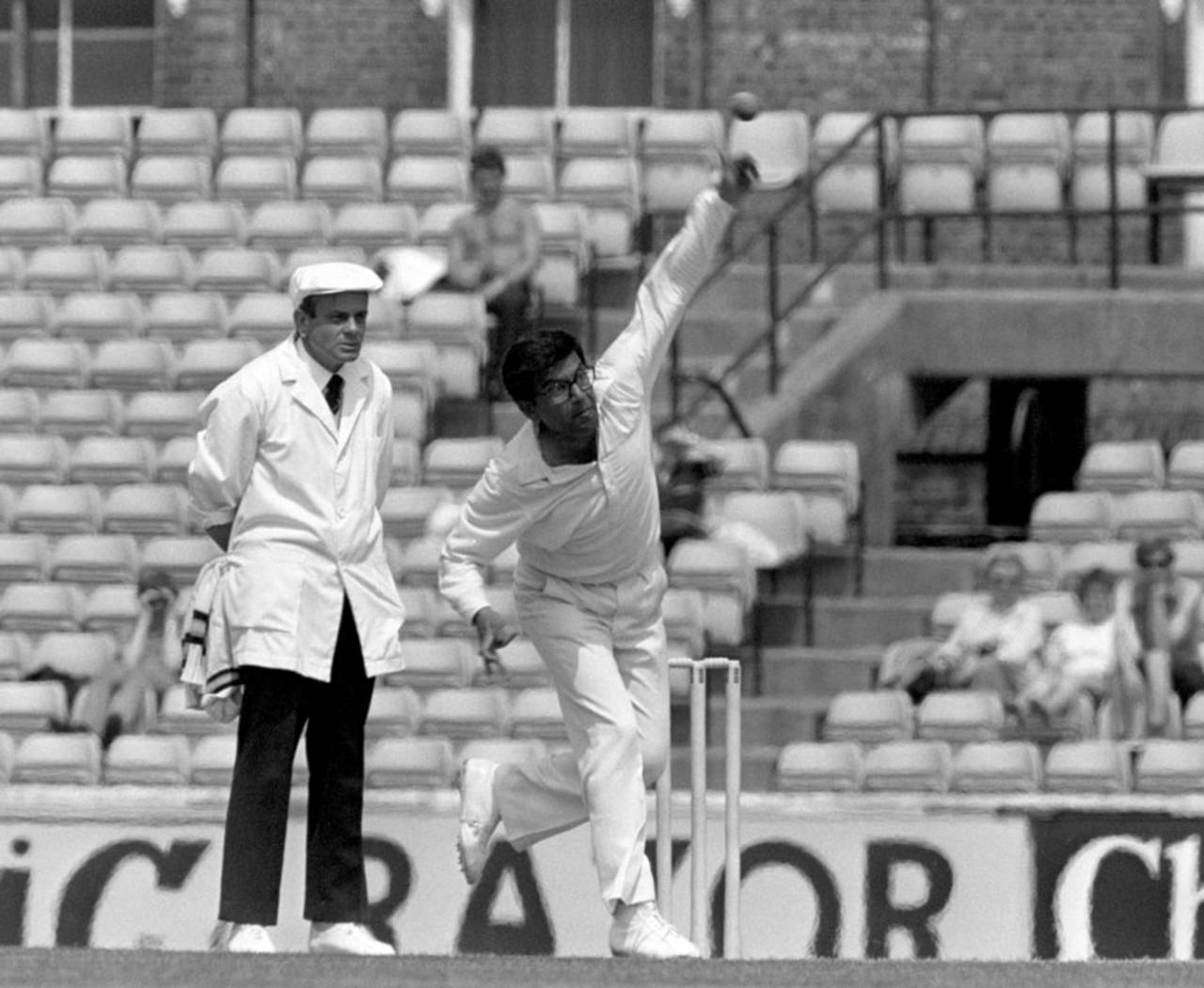Remembering Dilip Doshi, a team man who was his own man
He was sharp on the field, making batters overthink, and off the field, spoke out against petty-minded administrators
Suresh Menon
Jun 25, 2025, 10:25 AM

Dilip Doshi took 114 wickets at an average of 30.7 in 33 Tests between 1979 and 1983 • PA Photos
At a Rolling Stones concert in Bengaluru many years ago, Dilip Doshi, then an ex-India cricketer, spotted Rahul Dravid, a current player, and escorted him towards the stage. Mick Jagger, Doshi's good friend, was performing. I was sitting with my family nearby and saw this as entirely natural. Doshi was a team man and saw colleagues as family.
It was the attitude that saw him stand up for Dilip Vengsarkar after a misunderstanding at Sharjah airport in the 1980s that led to Vengsarkar being deported to India. A bunch of Indian stars who were with the team then didn't raise any objections. It was a commentary on the times in which Doshi played his cricket in India: it was every man for himself and the devil was assisted in his effort to take the hindmost.
Of the left-arm spinners who had the misfortune to play under the huge shadow of Bishan Singh Bedi, Doshi was probably the most gifted and understood his craft better than most. He made his debut at around the same age that Bedi played his last Test (past 30) and still claimed over a hundred wickets, a tribute as much to his competitiveness as his resilience. It helped that he played first-class cricket in England; it kept him fit and saw him bowl to the best batters on the international circuit.
His strike rate (81.7) was only a whit behind Bedi's (80.3), but in the era of Bedi, Erapalli Prasanna, Bhagwat Chandrasekhar and Srinivas Venkataraghavan, it was generally considered sacrilege to look beyond the quartet. Every spinner who followed was expected to combine the aesthetics and effectiveness of that generation.
Doshi was his own man. He gave the ball a rip that spun it alarmingly on helpful wickets and confused batters on good ones - batters who were taken in by the apparent effort. In this he was a bit like Clarrie Grimmett, who spun it the least when he seemed to be putting in the most effort. As that great left-arm spinner Wilfred Rhodes said, it is enough if the batter thinks it's spinning. Doshi was not only a thinking bowler himself, he was the cause for overthinking in batters.
With his thick glasses and slightly distracted air, Doshi reminded many of the absent-minded professor who knew he had found the solution to the problem the previous day but couldn't recall where he had left his work. But in fact, he was sharp and knew exactly what was happening around him. Some of his powers of observation found release in his autobiography Spin Punch, which earned praise from the likes of Garry Sobers, but didn't find too many cheering in his own team.

Doshi was not afraid to speak his mind, even during his playing career•AFP/Getty Images
He played for India at a time when the authorities kept players in check by injecting individuals with large quantities of insecurity. You had to be in the right camp, support the right official, and engage in public-relations work all the time. Doshi was unafraid to speak his mind. In Spin Punch, he went public with how team meetings were invariably about money and how much could be made how; cricket was discussed if at all only incidentally. He saw the BCCI as a self-aggrandising body, and his one-time friend Sunil Gavaskar as a "petty tyrant".
I am not sure he wanted to play a role in Indian cricket after his retirement, but if he did, he had trodden on too many toes for that to happen. Toes, his own, played an important role in the Doshi legend, when, bowling with broken ones that needed much medication, he bowled India to victory in the Melbourne Test of 1981. Fans love a performer who cuts through the pain barrier, and for a while Doshi, India's leading spinner, became a national hero despite the fact that he was not Bedi.
Yet, in the end, Doshi might have echoed Jagger to sum up a career that gave "Satisfaction" as much to himself as to lovers of the game of which he was a shining representative.
Suresh Menon is contributing editor, the Hindu